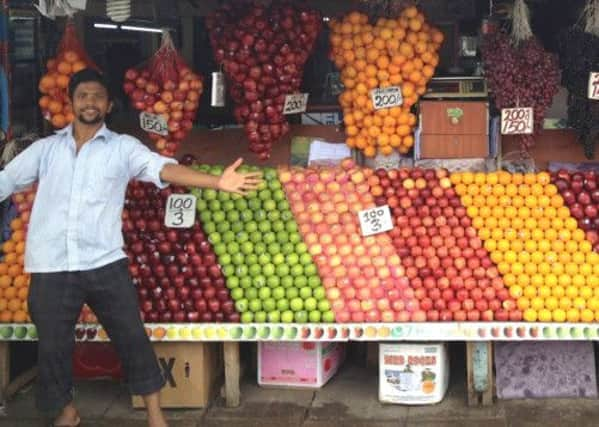Problems of volunteer tourism need to be addressed


REMEMBER the highly praised, purple-shirted Games Makers of London 2012? They kick-started a wave of enthusiasm for volunteering in the UK, and it’s encouraging that this seems to be continuing with recruitment for Glasgow’s Commonwealth Games. More than 50,000 people have applied to play a part in next year’s events, and half of those are currently being interviewed before the final 15,000 are selected.
The Games Makers developed a reputation as a dedicated volunteer workforce, giving up their time to make a valuable and worthwhile contribution. Some have even gone on to complete a national qualification – the Level 2 City & Guilds Award in the Principles of Customer Service – which recognises skills they developed last summer. This is a boost to their employability, to the hospitality sector, and has also done wonders to increase the profile of volunteering as a rewarding experience.
Advertisement
Hide AdAdvertisement
Hide AdThings, however, aren’t as rosy when it comes to volunteering internationally. There has been great debate in international development circles over what constitutes a useful, constructive volunteering opportunity. Although those satirical “Gap Yah” sketches featuring Orlando – dubbed the private-school equivalent of Little Britain’s Vicky Pollard – on his travels or organising fundraisers for “Haiti, in Africa” elicit a chuckle, they do raise a valid point.
The “voluntourism” trade where volunteers of all ages travel to developing countries – albeit under well-intentioned premises of supporting charitable organisations – is a cause for concern. Volunteers, and even the organisations themselves behind such trips, can have worryingly little understanding and it’s unsurprising that these opportunities can in fact be detrimental to the communities they aim to support.
For instance, take the horror stories of orphanages where managers are actually incentivised to keep children looking poor in order to keep support and finance from voluntourists coming in. Yes, of course that’s an extreme example, but it happens.
Here at Challenges Worldwide, we’re a not-for-profit social enterprise and we provide volunteering opportunities that have a lasting positive impact on communities. We partner with local and international organisations such as Oxfam and Christian Aid to deliver projects which support the development of fair and inclusive local economies.
Our volunteers assist enterprises and entrepreneurs in low and middle-income countries to strengthen their skills and abilities, which in turn helps them to grow businesses that generate income, sustainable economic growth and alleviate poverty.
Rather than taking the voluntourism approach of tailoring activities to suit volunteers, our assignments are dictated by needs of the organisations we work with. From scoping visits and dissertation research to providing support on areas like business planning, financial management or marketing, our volunteers know they are an integral part of process in building local capacity and improving the resilience and sustainability of these organisations
Take SolarNow, a business selling solar kits to households and businesses in off-grid areas of Uganda. They needed help to implement processes that would allow them to offer customers a 12-month credit term. Volunteer Kevin Kennedy, an experienced consultant, spent time working with the local team to identify and implement new initiatives, develop a business plan and provided sales training:
“It is rare to see hard-won experience have such a direct impact,” he said. “In my case I was able to directly fill a management gap in operations and vendor financing. This allowed SolarNow to move from a consultancy with expert marketing and microfinance knowledge to a fully integrated distribution and financing company.”
Advertisement
Hide AdAdvertisement
Hide AdThe company is now a market leader in Uganda and operates franchises in Tanzania, Mali, Burkina Faso and Senegal.
Or take Jerry Comyn, who left behind a career in corporate advertising and is now on his fifth business mentoring assignment with us. Speaking about his time with Eco-Fuel Africa, a business which manufactures an environmentally-friendly alternative to charcoal, Comyn said: “I have agreed a schedule of deadlines with their director, Sanga. It’s a heavy list but he appreciates everything we are working towards. I have great respect for his vision and have no doubt he will achieve everything he sets out to do. I feel privileged to be part of that.”
We’ve now supported hundreds of organisations in over forty low and middle-income countries and we hope that more talented individuals will opt to participate in placements with proven impact instead of the gap year-style voluntourism options on offer.